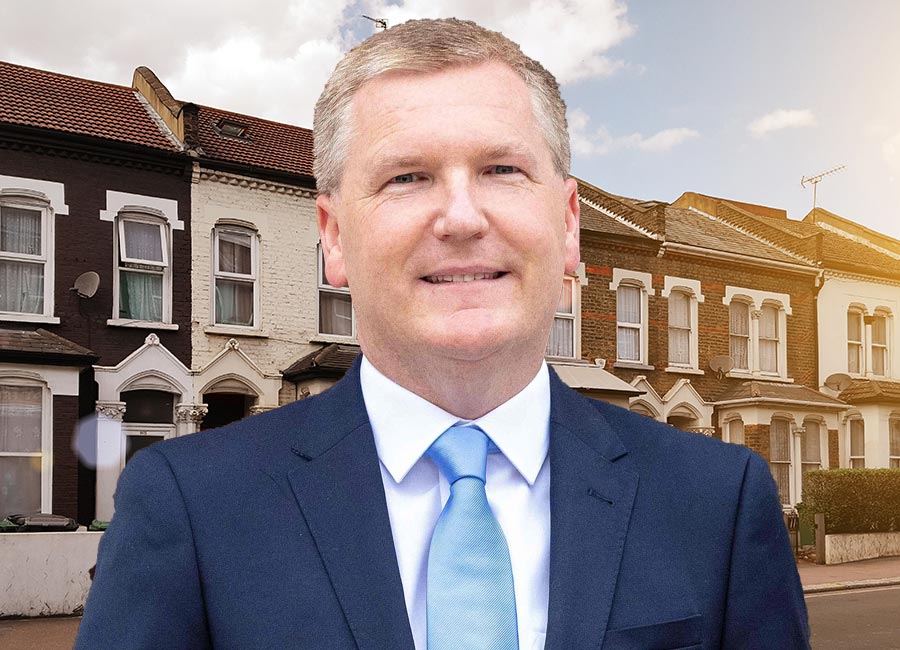THE Government is set to pay out €42million more in the Housing Assistance Payment (HAP) this year compared to 2021 - but experts have warned the 'illogical' scheme is driving up rents.
Officials at Housing Minister Darragh O'Brien's department confirmed yesterday to the Oireachtas Public Accounts Committee that €584million has been budgeted for HAP payments this year compared to €465million in 2020 and €542million in 2021.
TDs and senators also heard yesterday that €133million has been budgeted for the Rental Accommodation Scheme (RAS) - an €11million increase on the 2021 figure - meaning the Government is expecting to pay €717million between HAP and RAS payments.
Last year, 62,000 people availed of the HAP with the Department of Housing expecting that figure to rise to 71,000 in 2022.
HAP, which was introduced eight years ago, is a form of social housing support which sees local authorities make a monthly payment to a landlord, subject to terms and conditions including rent limits, on a HAP tenant's behalf.
Responding to questioning from Sinn Féin TD Matt Carthy, secretary general of the department, Graham Doyle, said that while 5,000 people were expected to exit the HAP scheme this year, 14,000 people were expected to sign up.
Senior lecturer in housing at Technological University Dublin Dr Lorcan Sirr said that the Government's reliance on the private rental sector to provide social housing is driving rent prices up.

"HAP was meant to be a short term measure but it's turning into a permanent feature of the Irish social housing system," Dr Sirr said. "The private rental sector is being used to house people that would normally be housed in social housing. The effect is, it's competing with everyone else looking for rental properties and it's also pushing up rents. We wonder why rents are rising and why people can't get accommodation - quite often it's because the council, local authorities, the State, are competing with everyone else, which is a very tricky position."
Dr Sirr said that the four Dublin local authorities built a total of 980 houses in 2020, while there are 26,653 on the housing waiting list in Dublin county. 'So when they're not building houses, they're out renting,' he said. 'It takes time to build houses but we've been hearing that line for nearly a decade now.'
Dr Sirr's concerns were echoed by Dr Rory Hearne, an assistant professor in social policy at Maynooth University. Dr Hearne said that a third of private rental tenancies are being taken up by some form of social housing support due to the lack of social houses, adding 'pressure' to the market.
'I think it shows that HAP is an illogical housing policy. For ten years, the Government shifted to getting social housing from the private rental market and told local authorities to stop building,' he told the Mail. 'It's now in a situation where it's chasing rent and... spending more and more money, going to private landlords to house people who should be in real social housing. And tenants are forced to pay top-ups which is forcing them into poverty.'
He continued: 'In terms of its impact on the market, you're seeing a third of private rental tenancies being taken up by some form - HAP, RAS or leasing - and this adds to the pressure in the rental market. So the Government is increasing pressure on the rental market through its housing policy.'
Áine Stapleton, assistant secretary for the Housing Department's social housing delivery division, told Sinn Féin TD Brian Stanley, chair of the Public Accounts Committee, the number of social homes built in 2021 is expected to be greater than 5,000, but the figures are yet to be finalised.
Figures previously published by the department revealed that 3,611 social homes were built in the first nine months of 2021, despite 10,300 being set as the target for the year. Under the Government's Housing for All plan, 9,000 social homes are expected to be delivered this year - a target that rises to 11,820 when homes that have been acquired and leased are factored in.
Images: Getty











